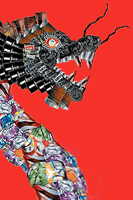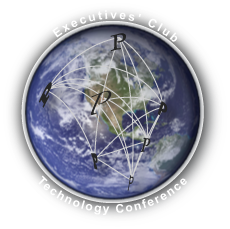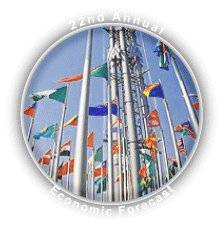Will China’s Rise Lead to an Environmental Catastrophe? summarizes The Economist Chicago debate, examining the environmental fallout of the Chinese economic supernova—sibling rivalry rears its ugly head.
 In 2007, nary an RSS feed or the page of a newspaper (for those still inclined ,^) does not mention China’s exploding impact on the global stage: China is truly an economic supernova, and it is breaking almost any record for development that is laid before it. However, China’s breakneck development is accompanied by grave environmental fallout: for example, as the host of the Beijing 2008 Olympic Games, the city is designing extreme measures to ensure that the air is clean enough for the athletes to breathe. The chief culprit is coal, a key source for China’s insatiable need for electric power, and a resource that the country has in abundance. For key facts on China, I suggest The Economist’s Country Briefing or CSRA’s Emerging Markets category (in depth) or China tag (mentions). In 2007, nary an RSS feed or the page of a newspaper (for those still inclined ,^) does not mention China’s exploding impact on the global stage: China is truly an economic supernova, and it is breaking almost any record for development that is laid before it. However, China’s breakneck development is accompanied by grave environmental fallout: for example, as the host of the Beijing 2008 Olympic Games, the city is designing extreme measures to ensure that the air is clean enough for the athletes to breathe. The chief culprit is coal, a key source for China’s insatiable need for electric power, and a resource that the country has in abundance. For key facts on China, I suggest The Economist’s Country Briefing or CSRA’s Emerging Markets category (in depth) or China tag (mentions).
The Economist and WBEZ 91.5 FM presented an Oxford-style debate on the effect that China’s rise […]
Visions for Technology Leadership
 After Gary Forsee’s luncheon address, a diverse panel of executives took the stage to discuss global technology leadership. Hardik Bhatt, CIO of the City of Chicago, Steve Goldman, Director of Architecture, the Chicago Mercantile Exchange, Raymond Spencer, CEO of Kanbay International, and David Weick, Global CIO of McDonald’s, shared their visions for Chicago’s global role in the world. Janet Kennedy, Midwest General Manager of Microsoft, gracefully moderated the panel discussion. The Executives’ Club of Chicago’s quarterly Technology Conference took place March 8 at the Chicago Hilton. After Gary Forsee’s luncheon address, a diverse panel of executives took the stage to discuss global technology leadership. Hardik Bhatt, CIO of the City of Chicago, Steve Goldman, Director of Architecture, the Chicago Mercantile Exchange, Raymond Spencer, CEO of Kanbay International, and David Weick, Global CIO of McDonald’s, shared their visions for Chicago’s global role in the world. Janet Kennedy, Midwest General Manager of Microsoft, gracefully moderated the panel discussion. The Executives’ Club of Chicago’s quarterly Technology Conference took place March 8 at the Chicago Hilton.
“Getting global” can mean many things, and panelists hit the issue from many directions. I’ll venture that, more than anything, it means changing one’s mindset, focus and approach, all of which are difficult to measure. All panelists represented organizations that had had international operations for decades, so how is global different?
[…]
Economic Insight Behind the Global Knowledge Market
 The Strategic Management Association, the Harvard Business School and the CDMA sponsored the 2007 Economic Forecast featuring David Hale, Chairman of Prince Street Capital Management and Lyric Hughes-Hale, Founder China Online. David has international renown as an international economist, and he presented his encyclopedic knowledge and perspective on global economic trends in Chicago on 9 January 2007. Afterward, Lyric shared her insights on China in Part II of the evening. The Global Human Capital Journal also covered the 2006 Economic Forecast. The Strategic Management Association, the Harvard Business School and the CDMA sponsored the 2007 Economic Forecast featuring David Hale, Chairman of Prince Street Capital Management and Lyric Hughes-Hale, Founder China Online. David has international renown as an international economist, and he presented his encyclopedic knowledge and perspective on global economic trends in Chicago on 9 January 2007. Afterward, Lyric shared her insights on China in Part II of the evening. The Global Human Capital Journal also covered the 2006 Economic Forecast.
David’s forecast was global in scope but adapted to his U.S. audience. It reflected many of the numbers behind the global shift to the Knowledge Economy, and how this is driving global prosperity:
[…]
The Knowledge Economy, Ultimate Context for Understanding the Future welcomes you to the Post-Industrial World, which turns past assumptions on their heads.
 The Knowledge Economy is a post-industrial economy characterized by a highly developed information technology industry along with overproduction and commoditization in industrial and agricultural sectors. Widespread information technology (IT) adoption among producers and consumers enables all market participants to create and share information about all aspects of economic transactions. The creation, packaging and sharing of information is termed “knowledge.” In the Knowledge Economy, information about an underlying good creates most of the good’s differentiated value. The Knowledge Economy is a post-industrial economy characterized by a highly developed information technology industry along with overproduction and commoditization in industrial and agricultural sectors. Widespread information technology (IT) adoption among producers and consumers enables all market participants to create and share information about all aspects of economic transactions. The creation, packaging and sharing of information is termed “knowledge.” In the Knowledge Economy, information about an underlying good creates most of the good’s differentiated value.
Consumer mobilization and engagement in the Knowledge Economy renders many of the Industrial Economy’s rules invalid. In the Industrial Economy, consumers had little information relative to producers, they were isolated from each other, and they had no collective voice. They were at a disadvantage as market participants. The “second stage” of the Internet, “Web 2.0,” facilitates P2P (peer to peer) information sharing, and its tools are free to use and accessible to anyone with an Internet connection. Producers […]
At the turn of the 21st Century, converging social, technological and political changes demand profound changes in how organizations relate to their customers. These changes question many of the assumptions on which 20th Century businesses are built. To turn this situation to their advantage, executives need to approach how they create value for their customers, quickly and proactively. They must build a collaborative network of partners to discover, design and deliver differentiated experience to customers.
The new meaning of customer experience Pervasive e-business and global sourcing are creating new centers of excellence for knowledge, services and manufacturing around the world—these clusters of people and companies are technology-enabled, well educated and highly motivated. They will impact incumbents in several ways: 1) they represent new collaborative resources that can add significantly to the enterprise expertise network; 2) they are developing into high-growth consumer markets; 3) they will create new offerings that may change the rules of your business since their companies do not have legacy organizations and cost structures. Web 2.0 is mobilizing customers in high-value mature markets—”Web 2.0″ technologies are user-friendly, collaborative tools and work processes that enable customers to connect with each other and collaborate spontaneously. Examples are […]
Clear Outsourcing Adoption Curve Emerges
 The IDC Outsourcing Forum Midwest convened sourcing thought leaders from global enterprises, world-class outsourcing providers and IDC’s leading analysts in Chicago September 11-12, 2006. They shared pioneering experiences that are pushing the transformational boundaries of outsourcing, one of the most important management practices to emerge in the 21st century. Case studies from the Williams Companies, AOL, Lucent, Barry-Wehmiller and Procter & Gamble explained how to use outsourcing to satisfy multifaceted business objectives, and a clear adoption curve is emerging that describes how outsourcing is reshaping the world’s largest organizations. The IDC Outsourcing Forum Midwest convened sourcing thought leaders from global enterprises, world-class outsourcing providers and IDC’s leading analysts in Chicago September 11-12, 2006. They shared pioneering experiences that are pushing the transformational boundaries of outsourcing, one of the most important management practices to emerge in the 21st century. Case studies from the Williams Companies, AOL, Lucent, Barry-Wehmiller and Procter & Gamble explained how to use outsourcing to satisfy multifaceted business objectives, and a clear adoption curve is emerging that describes how outsourcing is reshaping the world’s largest organizations.
[…]
Sidebar: Industrial Economy DNA
Chicago, in being one of the foremost industrial regions, has industrial economy DNA. This DNA isn’t well suited to the first phase of the knowledge economy, which turns many industrial economy assumptions on their heads. For example, even more remarkable than tech companies’ ability to create wealth quickly is their lack of constraints from raw material inputs: these companies can be located anywhere, irrespective of natural resources. Their main physical requirements are power and fiber, which can be built or brought almost anywhere. In contrast, putting together an industrial enterprise involves accommodating materials with physical constraints at every turn: the sources of raw material inputs are often limited and scarce. Moving the material or parts from one area of the enterprise to another often requires special machines and specialized equipment. Dangerous chemicals are often involved in transforming raw materials. Disposing of waste is not trivial. Often, machinery to transform the raw materials must be custom built, and the machinery imposes its own constraints. Consequently, Chicagoans are accustomed to changes being incremental; we are accustomed to things taking time. This economy is bits, not bytes.
Chicago is renowned as a distribution hub, which began with its proximity […]
The End of Corporate Imperialism, by C.K. Prahalad and Kenneth Lieberthal, encapsulates the obvious elegantly and factually, and its thesis is far more true today than in 1998, when it was written: “Too often, companies try to impose Western models of commerce on developing countries. They’d do better—and learn more—if they tailored their operations to the unique conditions of emerging markets.” Western MNCs (multinational corporations) perceive the primitive state of consumption in emerging markets, and they too often develop a strategy in which they: 1) focus on the extreme minority of wealthy consumers and/or 2) address the order of magnitude larger middle tier of the market by offering their past-mature products with minor cosmetic changes.
This is another symptom of MNCs’ being stuck between industrial and knowledge economies. As I stated in my Transourcing Point of View, “Enterprises are ambivalent about innovation and product creation because they represent an inherent conflict: the drive to amortize past investments (including process-oriented constraints of marketing, distribution, service, etc.) conflicts with companies’ need to satisfy customers’ wishes for novelty. In practice, this too often leads to vapid product extensions.” The industrial-era enterprise derived its competitiveness largely through production and distribution efficiency, and it marketed […]
The Emerging Global Labor Market: Don’t Panic! calls out leading research from McKinsey Global Institute on global development of many industries.
When the U.S. saw manufacturing companies move significant operations offshore during the 80s and 90s, most people were unhappy, but many understood that certain industries were maturing, facing global competition and price pressures. Consequently, they were forced to remain competitive through lower labor costs. However, as awareness of IT offshoring spread in the context of the Tech Bust in the early 2000s, it sent a chill of fear up and down the collective spine: “How could the high tech juggernaut be outsourced and offshored? Would this development prevent its recovery?” Noisy gnashing of teeth, protectionist legislation and demonstrations. The longer term question was:
As “the world” graduates many more engineers, MBAs and scientists than does the U.S., will they threaten the employment of U.S. high value professionals?
That’s an excellent (and important) question. The McKinsey Global Institute (MGI)published a significant study in June 2005, The Emerging Global Labor Market, in which they reported results of an in-depth analysis of the supply and demand of offshore outsourcing. In short, they found that:
Offshoring will create a “relatively small” global labor […]
Much of what I write in this space will revolve around the new knowledge economy in which we increasingly find ourselves (no, I’m not talking about the “New Economy” of the 90s ;-). Therefore, I offer these thoughts on the 3.x economies in which we have lived.
The Knowledge Economy
A knowledge economy is fundamentally a new animal because its outputs are increasingly information-intensive services and “products.” Many of these products are infinitely scalable, like CDs, software or Webcasts. Selling additional “copies” of digital (music) is accomplished at virtually zero marginal cost for production and distribution. Of course, a knowledge economy also produces numerous industrial and agrarian goods, but the value of these goods is shifting toward information-intensive services that are related to the goods—away from the underlying goods themselves. Some examples are:
[…]
|
|
 In 2007, nary an RSS feed or the page of a newspaper (for those still inclined ,^) does not mention China’s exploding impact on the global stage: China is truly an economic supernova, and it is breaking almost any record for development that is laid before it. However, China’s breakneck development is accompanied by grave environmental fallout: for example, as the host of the Beijing 2008 Olympic Games, the city is designing extreme measures to ensure that the air is clean enough for the athletes to breathe. The chief culprit is coal, a key source for China’s insatiable need for electric power, and a resource that the country has in abundance. For key facts on China, I suggest The Economist’s Country Briefing or CSRA’s Emerging Markets category (in depth) or China tag (mentions).
In 2007, nary an RSS feed or the page of a newspaper (for those still inclined ,^) does not mention China’s exploding impact on the global stage: China is truly an economic supernova, and it is breaking almost any record for development that is laid before it. However, China’s breakneck development is accompanied by grave environmental fallout: for example, as the host of the Beijing 2008 Olympic Games, the city is designing extreme measures to ensure that the air is clean enough for the athletes to breathe. The chief culprit is coal, a key source for China’s insatiable need for electric power, and a resource that the country has in abundance. For key facts on China, I suggest The Economist’s Country Briefing or CSRA’s Emerging Markets category (in depth) or China tag (mentions).
 After Gary Forsee’s luncheon address, a diverse panel of executives took the stage to discuss global technology leadership. Hardik Bhatt, CIO of the City of Chicago, Steve Goldman, Director of Architecture, the Chicago Mercantile Exchange, Raymond Spencer, CEO of Kanbay International, and David Weick, Global CIO of McDonald’s, shared their visions for Chicago’s global role in the world. Janet Kennedy, Midwest General Manager of Microsoft, gracefully moderated the panel discussion. The Executives’ Club of Chicago’s quarterly Technology Conference took place March 8 at the Chicago Hilton.
After Gary Forsee’s luncheon address, a diverse panel of executives took the stage to discuss global technology leadership. Hardik Bhatt, CIO of the City of Chicago, Steve Goldman, Director of Architecture, the Chicago Mercantile Exchange, Raymond Spencer, CEO of Kanbay International, and David Weick, Global CIO of McDonald’s, shared their visions for Chicago’s global role in the world. Janet Kennedy, Midwest General Manager of Microsoft, gracefully moderated the panel discussion. The Executives’ Club of Chicago’s quarterly Technology Conference took place March 8 at the Chicago Hilton. The Strategic Management Association, the Harvard Business School and the CDMA sponsored the 2007 Economic Forecast featuring David Hale, Chairman of Prince Street Capital Management and Lyric Hughes-Hale, Founder China Online. David has international renown as an international economist, and he presented his encyclopedic knowledge and perspective on global economic trends in Chicago on 9 January 2007. Afterward, Lyric shared her insights on China in Part II of the evening. The Global Human Capital Journal also covered the 2006 Economic Forecast.
The Strategic Management Association, the Harvard Business School and the CDMA sponsored the 2007 Economic Forecast featuring David Hale, Chairman of Prince Street Capital Management and Lyric Hughes-Hale, Founder China Online. David has international renown as an international economist, and he presented his encyclopedic knowledge and perspective on global economic trends in Chicago on 9 January 2007. Afterward, Lyric shared her insights on China in Part II of the evening. The Global Human Capital Journal also covered the 2006 Economic Forecast. The Knowledge Economy is a post-industrial economy characterized by a highly developed information technology industry along with overproduction and commoditization in industrial and agricultural sectors. Widespread information technology (IT) adoption among producers and consumers enables all market participants to create and share information about all aspects of economic transactions. The creation, packaging and sharing of information is termed “knowledge.” In the Knowledge Economy, information about an underlying good creates most of the good’s differentiated value.
The Knowledge Economy is a post-industrial economy characterized by a highly developed information technology industry along with overproduction and commoditization in industrial and agricultural sectors. Widespread information technology (IT) adoption among producers and consumers enables all market participants to create and share information about all aspects of economic transactions. The creation, packaging and sharing of information is termed “knowledge.” In the Knowledge Economy, information about an underlying good creates most of the good’s differentiated value. The IDC Outsourcing Forum Midwest convened sourcing thought leaders from global enterprises, world-class outsourcing providers and IDC’s leading analysts in Chicago September 11-12, 2006. They shared pioneering experiences that are pushing the transformational boundaries of outsourcing, one of the most important management practices to emerge in the 21st century. Case studies from the Williams Companies, AOL, Lucent, Barry-Wehmiller and Procter & Gamble explained how to use outsourcing to satisfy multifaceted business objectives, and a clear adoption curve is emerging that describes how outsourcing is reshaping the world’s largest organizations.
The IDC Outsourcing Forum Midwest convened sourcing thought leaders from global enterprises, world-class outsourcing providers and IDC’s leading analysts in Chicago September 11-12, 2006. They shared pioneering experiences that are pushing the transformational boundaries of outsourcing, one of the most important management practices to emerge in the 21st century. Case studies from the Williams Companies, AOL, Lucent, Barry-Wehmiller and Procter & Gamble explained how to use outsourcing to satisfy multifaceted business objectives, and a clear adoption curve is emerging that describes how outsourcing is reshaping the world’s largest organizations.